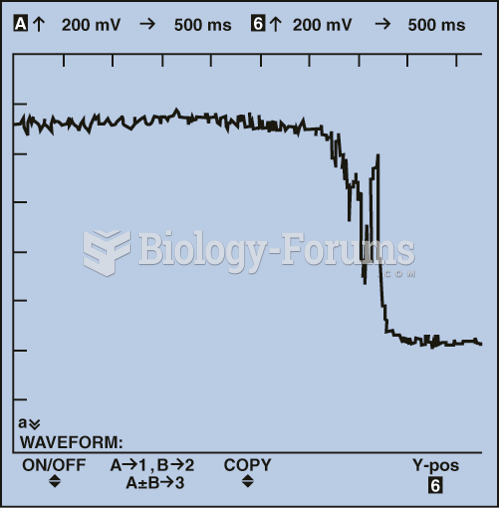|
|
|
Street names for barbiturates include reds, red devils, yellow jackets, blue heavens, Christmas trees, and rainbows. They are commonly referred to as downers.
Methicillin-resistant Staphylococcus aureus or MRSA was discovered in 1961 in the United Kingdom. It if often referred to as a superbug. MRSA infections cause more deaths in the United States every year than AIDS.
The human body's pharmacokinetics are quite varied. Our hair holds onto drugs longer than our urine, blood, or saliva. For example, alcohol can be detected in the hair for up to 90 days after it was consumed. The same is true for marijuana, cocaine, ecstasy, heroin, methamphetamine, and nicotine.
Alzheimer's disease affects only about 10% of people older than 65 years of age. Most forms of decreased mental function and dementia are caused by disuse (letting the mind get lazy).
Interferon was scarce and expensive until 1980, when the interferon gene was inserted into bacteria using recombinant DNA technology, allowing for mass cultivation and purification from bacterial cultures.
 The Power and Control Wheels of Abusive Relationships When one person in a relationship repeatedly ...
The Power and Control Wheels of Abusive Relationships When one person in a relationship repeatedly ...
 An AC voltage is produced by a magnetic sensor. Most sensors should produce at least 0.1 volt AC ...
An AC voltage is produced by a magnetic sensor. Most sensors should produce at least 0.1 volt AC ...
 A planar design zirconia oxygen sensor places all of the elements together, which allows the sensor ...
A planar design zirconia oxygen sensor places all of the elements together, which allows the sensor ...





